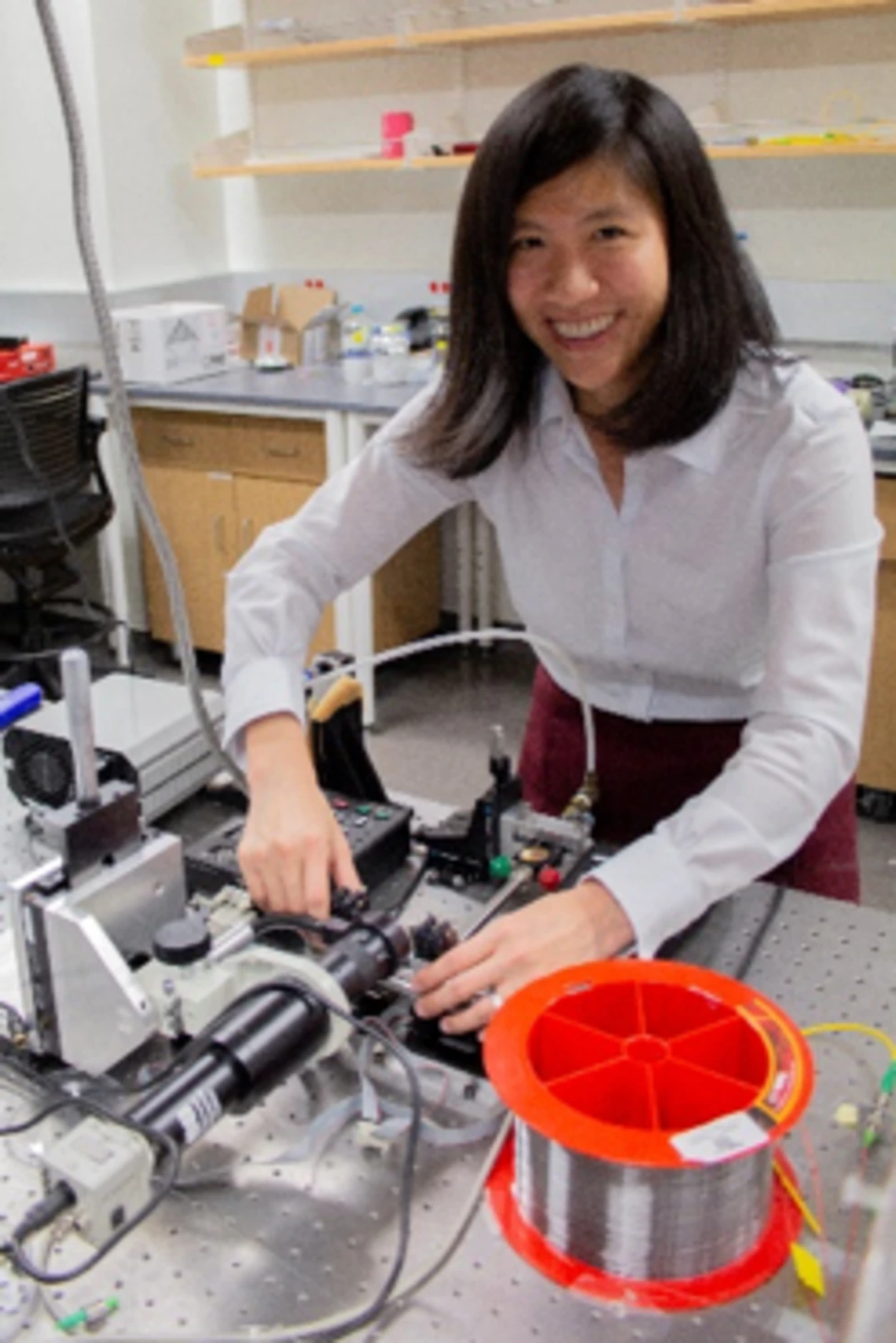Judith Su Named to Two Scientific Boards, Highlighted by SPIE

Assistant professor Judith Su has had a busy – and successful – year. Su, who is also a professor in optical sciences and at the BIO5 Institute and an assistant research scientist in chemistry and biochemistry, was named to two scientific advisory boards in 2019 and featured in SPIE’s 2020 Women in Optics Planner.
Her first appointment was to the Board of Scientific Counselors for the National Institute for Occupational Health and Safety, or NIOSH, a federal agency within the U.S. Centers for Disease Control and Prevention. The NIOSH BSC consists of only 15 experts from across the United States.
“As my research focuses on the development and use of ultrasensitive sensors, I believe that my appointment to the Board of Scientific Counselors for NIOSH shows that the role of sensors in workers' health and safety is being recognized and valued,” Su said.
She and her lab have spent the last few years pushing the limits of detection for optical sensing technology. A technology they developed called Frequency Locked Optical Whispering Evanescent Resonator, or FLOWER, can detect low concentrations of molecules down to the single-molecule limit.
“It can do this without requiring the use of labels such as fluorescent or radioactive tags – which can introduce artifacts, perturb the system being studied and may not always be available,” Su said. “One key advantage of FLOWER over other label‐free single molecule sensing approaches is that it can perform detection as well as kinetics experiments.”
Optics & Photonics News, the monthly news magazine of the Optical Society (OSA), named FLOWER as one of the top accomplishments in the general field of optics in 2016. Su’s paper on the technology also received a 2018 outstanding paper award from Light: Science & Applications.
Femtorays Technologies, an Italy-based startup company, has purchased the option to license Su’s sensor technology and named her to their scientific advisory board this summer. In this position, she’ll be providing technical guidance to the company about the product.
“It is nice to see the technology that we developed be of interest and be used,” Su said. “My hope is that this will enable our work to reach the hands of many people and have broad impact.”
SPIE, the international society for optics and photonics, also featured Su in their 2020 SPIE Women in Optics Planner, which highlights women who are making a difference through their work and other contributions to the fields of science, optics and engineering.
